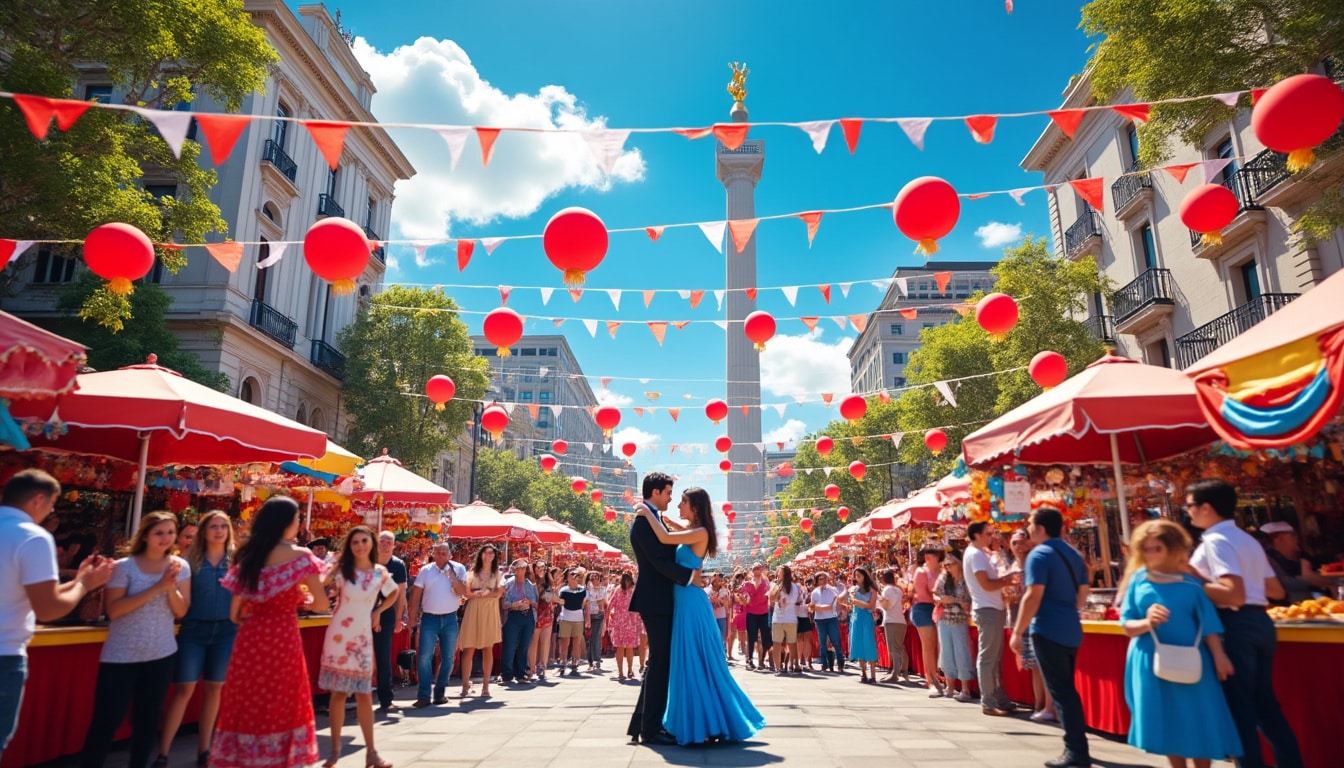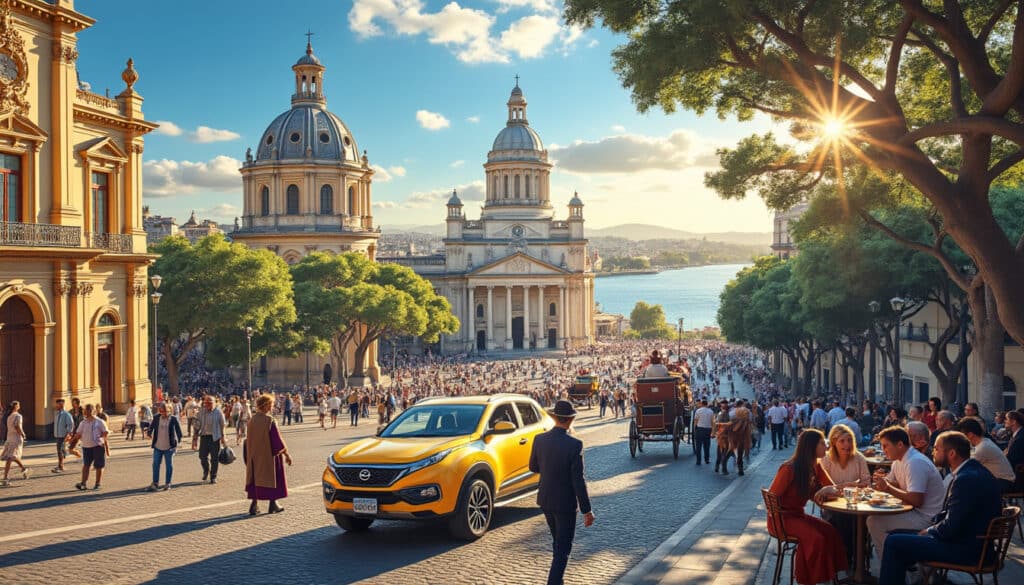Buenos Aires, the enchanting capital of Argentina, is a city that thrives on celebrations, cultural diversity, and vibrant festivals. Its festive calendar is brimming with events that capture the essence of its rich history and multifaceted identity. From the iconic Carnaval Porteño bringing vivid parades to its streets, to the deeply significant Truth and Justice Memorial Day, Buenos Aires offers a year-round tapestry of festivities that unite its people and fascinate its visitors. Each event is an invitation to experience the infectious energy, sumptuous flavors, and the passionate spirit that make Buenos Aires a vibrant cultural hub in South America.
Carnaval Porteño and Its Joyous Revelry
The Carnaval Porteño, celebrated every February, is a vibrant manifestation of Argentine culture. Comparable in spirit to the famous Carnivals of Brazil, the Buenos Aires version transforms the city into a riot of colors and exuberant energy. The traditional barrios such as San Telmo and La Boca come alive with parades, music, and dances that echo the rich cultural diversity of Buenos Aires. During this time, locals engage in murga, which combines percussion music with spirited dancing, turning the streets into an open dance floor.
The festival also features a myriad of events, including costume competitions and street performances. One captivating aspect of the Carnival is the participation of people from all walks of life, dressed in elaborate costumes, adding to the festival’s vibrant tapestry. Each neighborhood in Buenos Aires hosts its version of the Carnival, with Liniers being notably popular for its grand floats and lively processions.
Organizers of the festival emphasize community engagement, making the event a significant opportunity for tourists to mingle with locals and experience the heart of Buenos Aires Tourism. The Carnival is not just a spectacle but a cultural tradition that celebrates the city’s spirit and its people’s creativity.
Diversity is highlighted through food stalls offering local delicacies. From traditional milanesa sandwiches to exotic Argentine wines, these treats offer a culinary journey of flavors. As the night falls, festivities continue with music blaring from every corner, ensuring that the city is alive round-the-clock during these exhilarating days.
- 🎭 Costume parades and street performances
- 🕺 Murga dances and percussion music
- 🧁 Traditional food stalls with local delicacies
The Carnaval Porteño in Buenos Aires is more than a festival; it’s a window into the city’s soul. For anyone visiting or residing in Buenos Aires, this event is a must-see, leaving an indelible mark on all who participate.
Cultural Richness Through Festivals and Parades
Buenos Aires is a city where cultural diversity gets the spotlight through numerous festivals and parades, reflecting its historical roots and modern vibrancy. One of the most esteemed events is the Buenos Aires International Festival of Independent Cinema (BAFICI), scheduled for April each year. This festival is a pivotal platform for filmmakers worldwide, emphasizing innovative storytelling and the celebration of cinematic arts.
Aside from BAFICI, the Feria de Mataderos stands as a testament to the city’s commitment to preserving its traditions. This weekly market celebrates Argentine crafts and folklore through exhibitions of local artisans, performances of traditional dances, and tasting routes of regional foods. The Feria particularly shines on national holidays, such as the Day of Tradition in November, immersing visitors in Argentina’s rural and cultural essence.
Another flagship event is the Buenos Aires Pride Parade, renowned as one of the largest gay pride events in Latin America. Held every November, it serves as a vibrant celebration of equality, diversity, and fundamental human rights. Thousands gather in solidarity, turning the streets into a colorful avenue of acceptance.
The cultural festivals and parades throughout the year showcase more than just Argentina’s traditions; they are a testament to the dynamic cultural life that defines Buenos Aires. The art spaces, streets, and plazas become canvas and stage for expressions of identity, creativity, and pride. As a city guide would suggest, experiencing these festivals offers deep insights into the cultural milieu of Buenos Aires.
| Event | Date | Highlight |
|---|---|---|
| BAFICI | April | Independent film screenings |
| Feria de Mataderos | Year-round | Traditional Argentine crafts |
| Pride Parade | November | Celebration of LGBTQ+ diversity |
These festivals and parades are integral to understanding and experiencing the cultural heartbeat of Buenos Aires, inviting locals and tourists alike to become part of the city’s vibrant life.
Public Holidays: History and Legacy
Argentina’s public holidays reflect a deep commitment to honoring its history and cherishing its cultural legacy. Among these is the Truth and Justice Memorial Day on March 24, a profound and solemn occasion commemorating the victims of the Dirty War. On this day, Buenos Aires reverberates with activities dedicated to remembrance and justice, shedding light on one of the country’s darkest times.
April 2 marks Veterans Day, or “Día del Veterano y de los Caídos en la Guerra de Malvinas,” which honors the soldiers who fought in the Falklands War. Across Buenos Aires, ceremonial parades reflect on the bravery and sacrifices of these veterans, drawing considerable public engagement.
Another significant public holiday is May 1, Labor Day, which sees the city centered around labor rights and workers’ achievements. Rallies and demonstrations echo the struggles and triumphs of the labor movement, often culminating in lively cultural events celebrating unity and collective rights.
Moreover, July 9 stands as a cornerstone in the national psyche, celebrating Argentine Independence Day. This festive day is marked by grand parades, fireworks, and cultural exhibitions, reverberating with pride and historical memory. The depth of involvement from various sectors of society in these celebrations underscores the importance of collective memory and national identity.
- 🇦🇷 Truth and Justice Memorial Day (March 24)
- 🎖️ Veterans Day (April 2)
- ⚒️ Labor Day (May 1)
- 🇦🇷 Independence Day (July 9)
Buenos Aires, through its public holidays, not only remembers and celebrates its past but also educates future generations about its rich and complex history, making these occasions critical to the city’s cultural narrative.
Traditional and Religious Celebrations in Buenos Aires
Buenos Aires embraces its religious roots with grand celebrations that blend faith and local traditions. December 8 marks the Day of the Immaculate Conception, a national holiday where the city becomes a sea of piety. This day is noteworthy for its solemn processions, masses, and vigil gatherings, with many visiting shrines dedicated to the Virgin Mary. Devotion is palpable, as this day holds great significance in Argentina’s Catholic tradition.
Christmas in Buenos Aires deviates from frigid Western norms, instead thriving under the warm December skies Learn more about Buenos Aires’ December weather. On Nochebuena, or Christmas Eve, families come together to feast and exchange gifts until the clock strikes midnight. The city dazzles with lights, while fireworks illuminate the sky, culminating in a magical atmosphere that continues into joyous celebrations of New Year’s Eve.
Easter in Buenos Aires celebrates renewal and faith, where the week leading up to Easter Sunday is filled with religious observances and community gatherings. Buenos Aires’ profound connection to its faith is also evident in smaller, yet equally revered events like the Feast of the Virgin Mary and religious festivals that combine spirituality and cultural tradition in vibrant forms.
| Holiday | Significance | Activities |
|---|---|---|
| Day of Immaculate Conception | Religious devotion | Processions and masses |
| Christmas | Family celebration | Midnight feasts and fireworks |
| Easter | Religious reflection | Community gatherings and masses |
These events highlight Buenos Aires’ embrace of its rich cultural and religious heritage, offering a unique narrative of Argentine spirituality woven into daily life
Culinary Festivals: A Taste of Buenos Aires
As any Tango Tours might highlight, Buenos Aires offers an exquisite culinary landscape enriched by vibrant festivals celebrating its gastronomic heritage. The annual Milanesa Festival is an ode to one of Argentina’s most cherished dishes, drawing locals and tourists to savor different variations of this breaded delight, from traditional styles to innovative gourmet renditions.
Argentina is renowned for its wine, with Buenos Aires playing host to numerous Argentine Wine Tasting events. Local winemakers and vendors gather to showcase their finest selections, providing an excellent opportunity to indulge in both red and white varietals alongside local dishes. These events are not just about tasting; they are about celebrating the art and culture intertwined with wine making.
Throughout the year, Buenos Aires hosts various fairs offering an authentic taste of its culinary ethos. Street food stalls present an array of options, from flavorful empanadas to perfectly grilled asado. These culinary festivals are a crucial part of Buenos Aires’ identity, reflecting its fusion of European influences and enduring local traditions.
- 🥩 Milanesa Festival: Celebrating Argentina’s beloved dish
- 🍷 Argentine Wine Tasting: In-depth exploration of regional wines
- 🍢 Street Food Fairs: Fusion of flavors and aromas
For food enthusiasts, these festivals offer a captivating journey through the flavors of Buenos Aires, reflecting its eclectic culture and the passion its people have for culinary excellence.
Frequently Asked Questions
- How long does the Carnaval Porteño last?
The Carnaval Porteño typically lasts for several days, usually over a weekend in February, with varying activities across different neighborhoods.
- Are there any specific cultural etiquettes to be aware of when attending festivals?
It’s courteous to show respect for the traditions and participate in festivities with an open mind. Enjoying local food and engaging with festivities are encouraged.
- What are some must-try foods during Argentina’s culinary festivals?
Do not miss out on trying the milanesas, empanadas, choripán, and of course, traditional asado. These dishes offer a true taste of Argentine cuisine.

Fun Facts & Curiosities About Buenos Aires
Buenos Aires, the heart and soul of Argentina, is not just a city, but an experience. Known for its vibrant culture, architectural marvels, and passionate tango, Buenos Aires offers surprising facts and curiosities that even frequent visitors may find fascinating.…
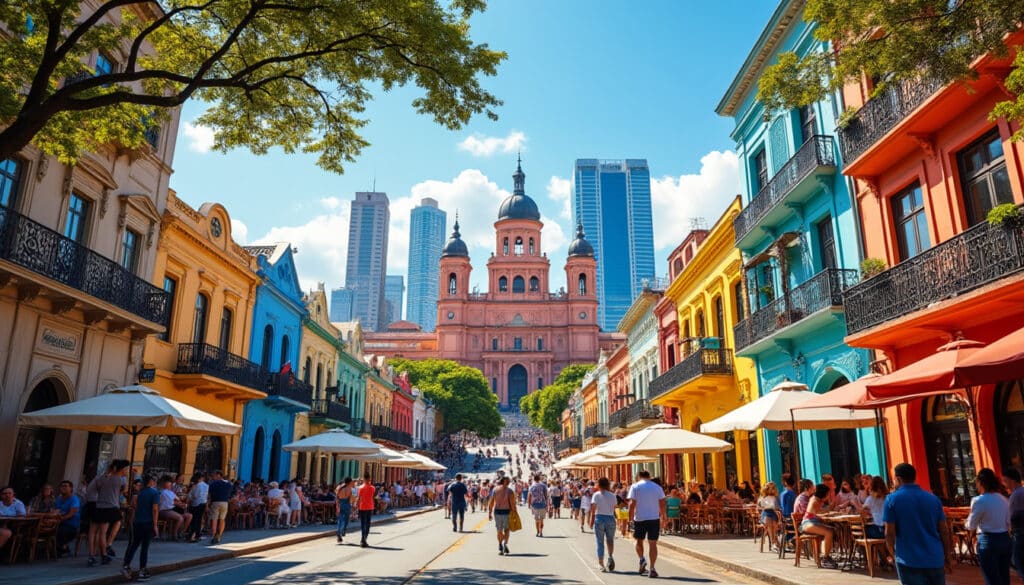
Architecture and urban features of Buenos Aires
Buenos Aires is renowned for its captivating architectural diversity, a melting pot of styles that reflect its rich cultural heritage. Known as both “The queen of the Río de la Plata” and “Latin America’s Paris,” the city’s landscape is a…
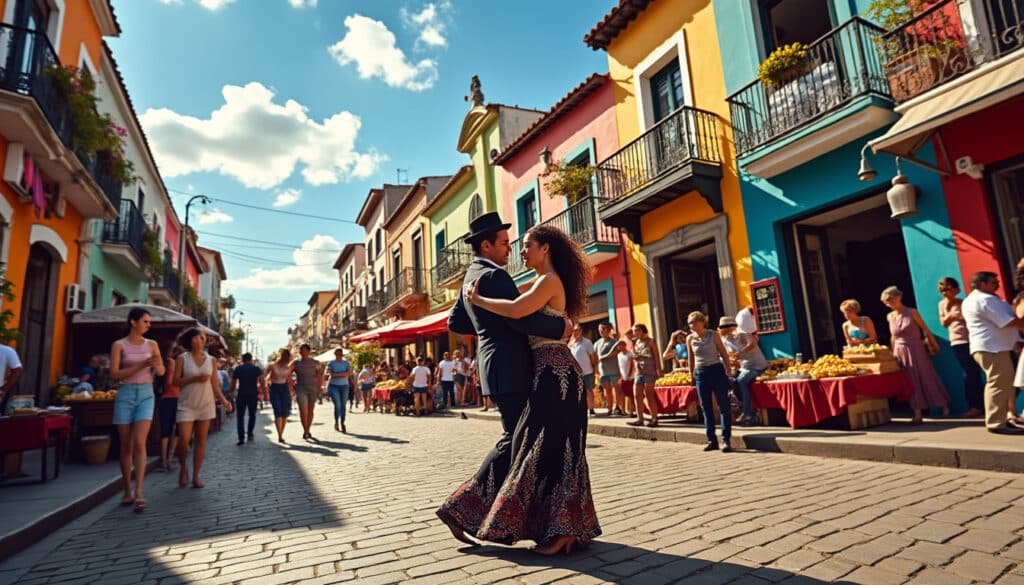
Basic facts about Buenos Aires
Buenos Aires, the vibrant capital of Argentina, is a city of inspiring contrasts and bustling energy. Famous for its rich cultural heritage and dynamic street life, it attracts travelers from all over the world. With its European flair and Latin…
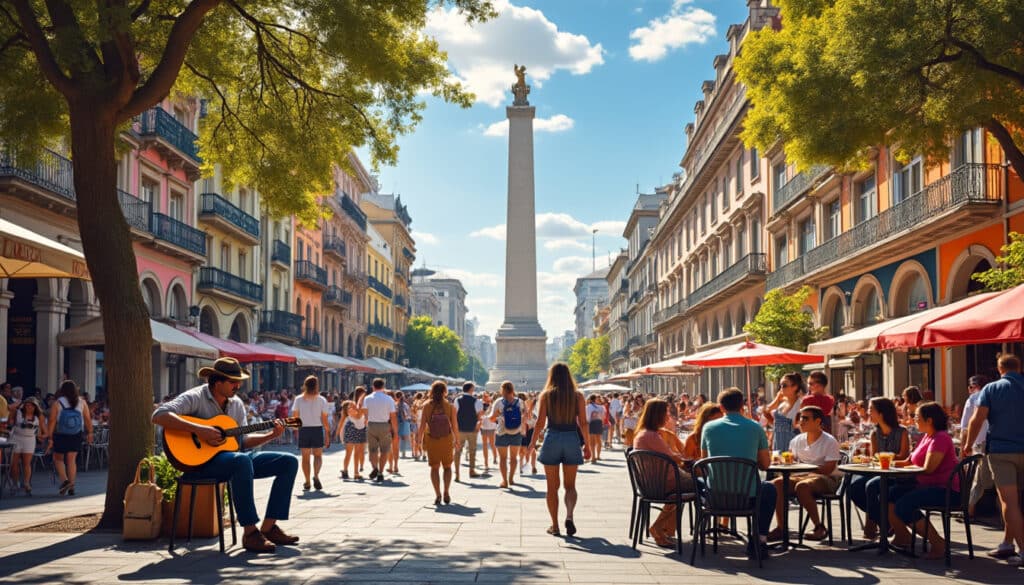
Often referred to as the “Paris of South America,” Buenos Aires blends European elegance with Latin American passion, creating a vibrant tapestry of culture and daily life that intrigues many. As the capital city of Argentina, it’s a place where…
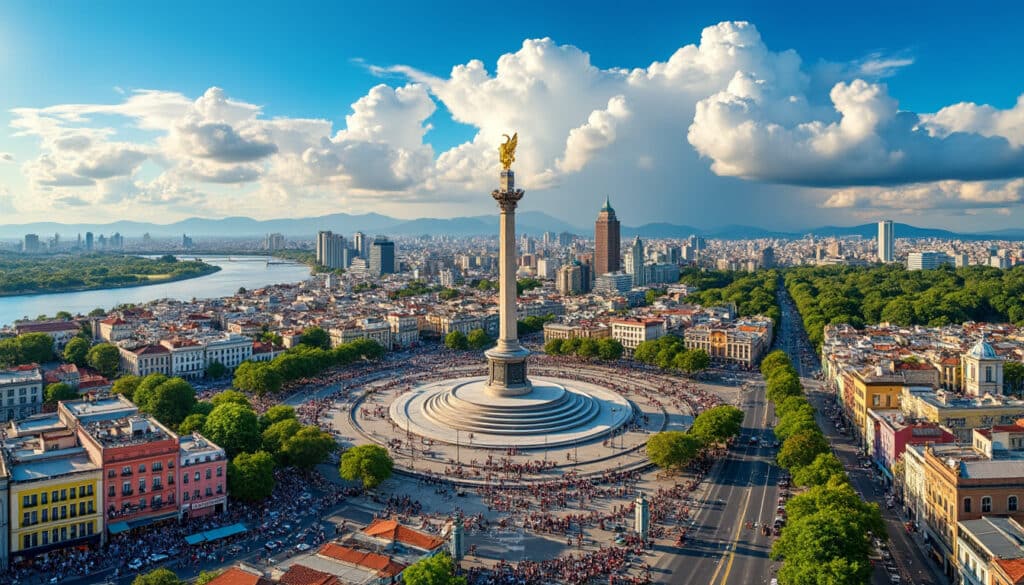
Demographics and geography of Buenos Aires
Buenos Aires, a city pulsating with energy, stands as one of the most influential urban landscapes in Latin America. Known for its captivating blend of European flair and Latin American warmth, Buenos Aires is rich in cultural diversity and historical…

Language and spelling of Buenos Aires
Buenos Aires, often celebrated as the “Paris of South America,” stands as the vibrant capital of Argentina, rich in cultural diversity and linguistic variety. Known for its dynamic blend of European elegance and Latin American flair, Buenos Aires captivates millions…
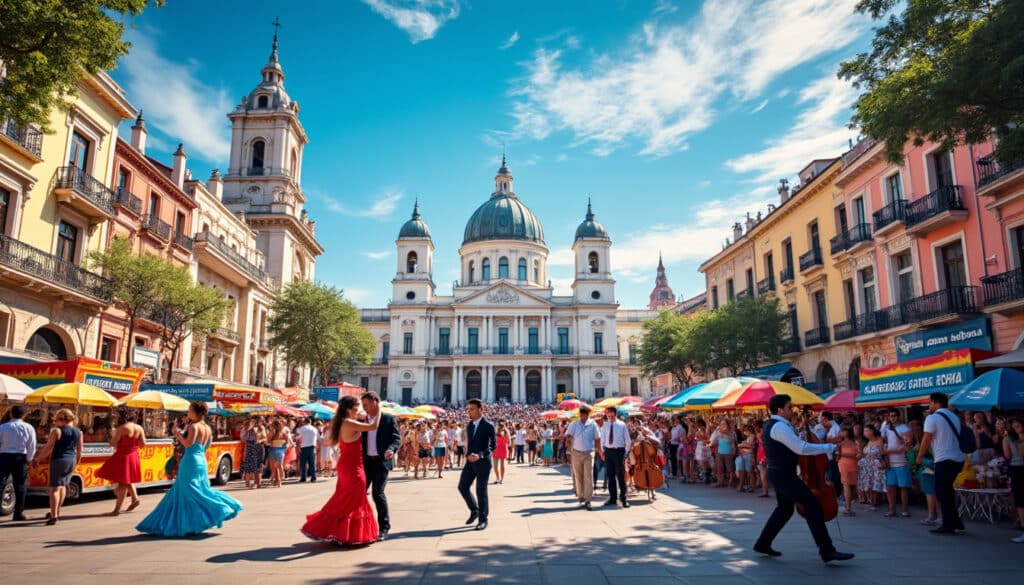
Local tips for tourists in Buenos Aires
Embark on an unforgettable journey through the vibrant streets of Buenos Aires, a city that seamlessly blends rich history with modern charm. For tourists visiting Buenos Aires, these insider tips will help you navigate the city’s hidden gems, culinary adventures,…
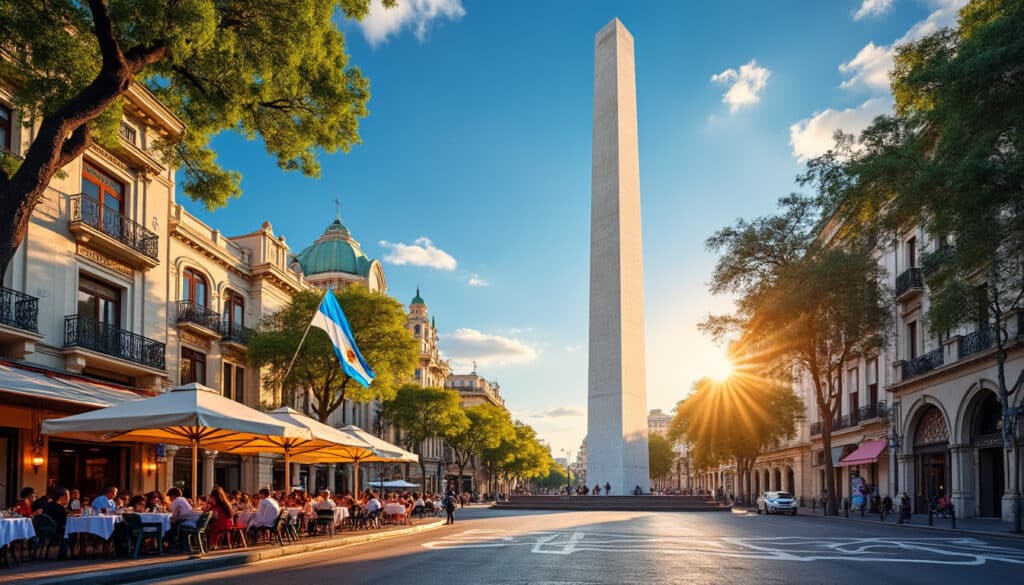
Names, flags, and identity of Buenos Aires
Buenos Aires, often dubbed the “Paris of the South,” is a city where history, culture, and identity intertwine in a dynamic tapestry. Beyond its vibrant streets, alive with the rhythm of tango and the aroma of mate, the identity of…
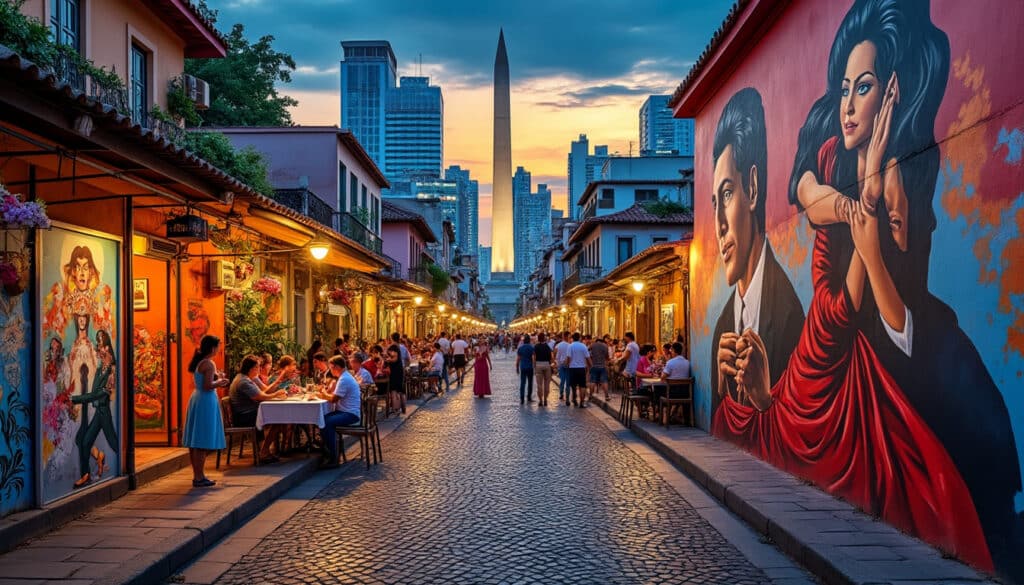
Reputation and identity of Buenos Aires
Buenos Aires, the capital of Argentina, stands as a testament to the rich history and cultural diversity that flow through its vibrant streets. Recognized for its European charm coupled with Latin American flair, the city offers a unique blend of…
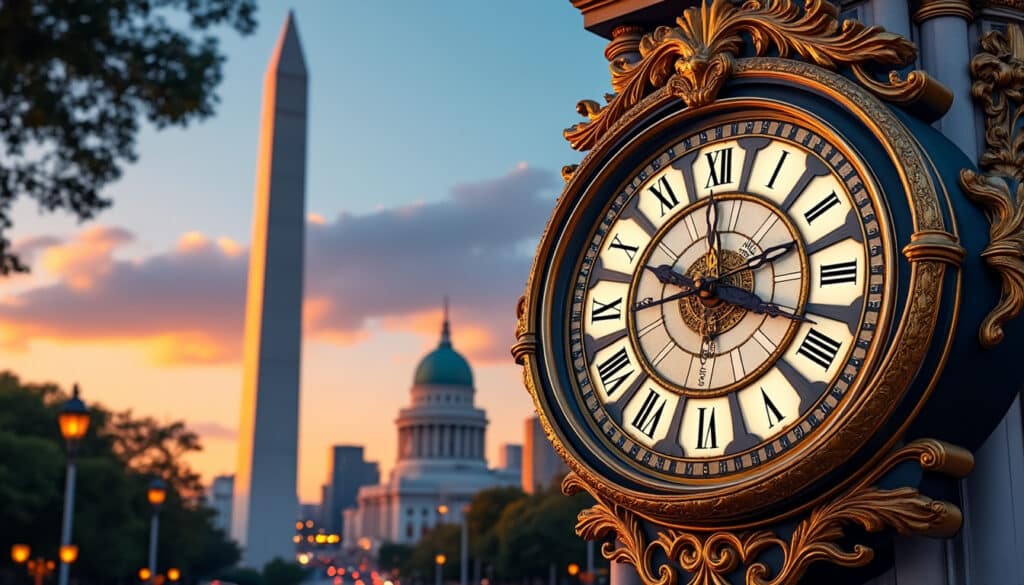
Time and time zone in Buenos Aires
Experience the vibrant ebb and flow of Buenos Aires, where time seems to waltz to the city’s unique rhythm. Understanding Buenos Aires Time is more than just setting your watch; it’s about immersing oneself into the heart of Argentina Time,…
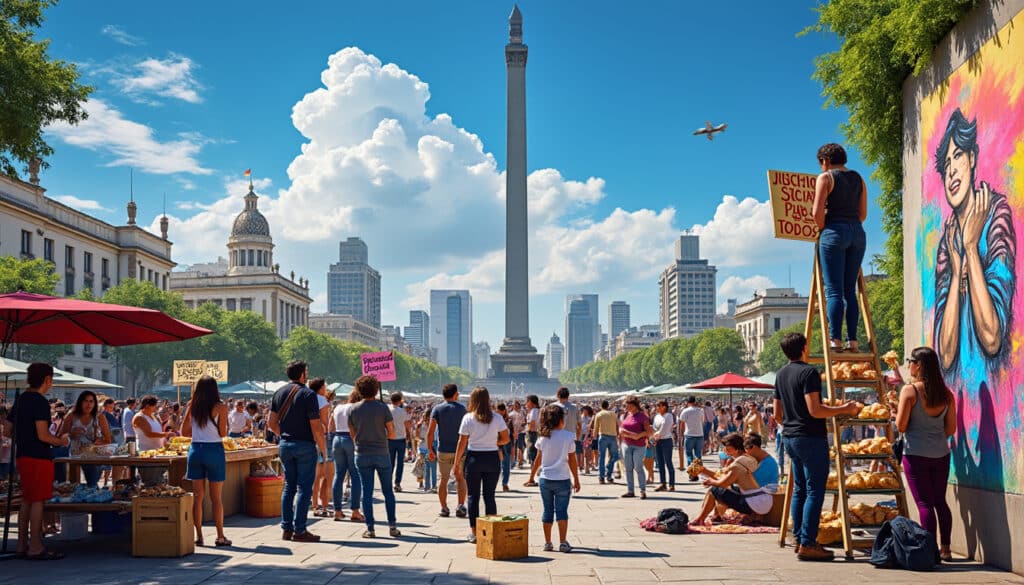
Unusual facts and social issues in Buenos Aires
Buenos Aires, with its captivating blend of old-world charm and dynamic modernity, captivates visitors and residents alike with many intriguing facets and pressing social issues. Behind the tango rhythms and lively street art lies a tapestry of unique cultural characteristics…
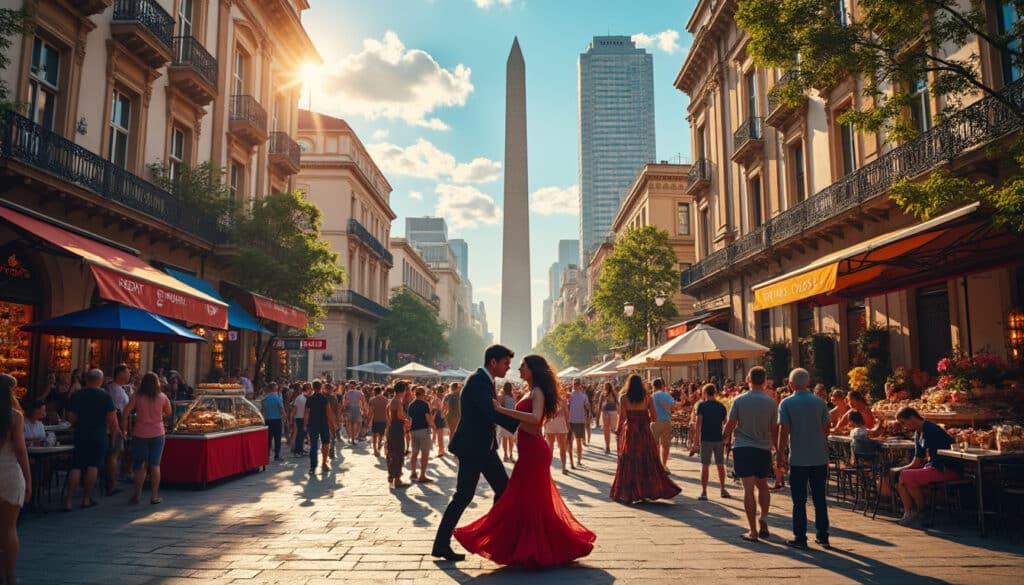
What does Buenos Aires look, smell, feel like?
Welcome to a city that dances even when you walk, a place where the rhythm never stops, and the sensation never fades. Buenos Aires, aptly known as the “Paris of South America,” invites you to explore its streets filled with…

